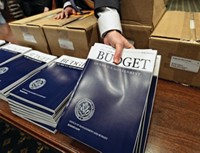Advertisement
Grab your lab coat. Let's get started
Welcome!
Welcome!
Create an account below to get 6 C&EN articles per month, receive newsletters and more - all free.
It seems this is your first time logging in online. Please enter the following information to continue.
As an ACS member you automatically get access to this site. All we need is few more details to create your reading experience.
Not you? Sign in with a different account.
Not you? Sign in with a different account.
ERROR 1
ERROR 1
ERROR 2
ERROR 2
ERROR 2
ERROR 2
ERROR 2
Password and Confirm password must match.
If you have an ACS member number, please enter it here so we can link this account to your membership. (optional)
ERROR 2
ACS values your privacy. By submitting your information, you are gaining access to C&EN and subscribing to our weekly newsletter. We use the information you provide to make your reading experience better, and we will never sell your data to third party members.
Environment
Interagency Initiatives: Education, Climate Science, And Nanotech All Grow
by Susan R. Morrissey
February 28, 2011
| A version of this story appeared in
Volume 89, Issue 9
COVER STORY
Interagency Initiatives: Education, Climate Science, And Nanotech All Grow
Following through on his State of the Union challenge to prepare 100,000 STEM teachers over the next decade, the President requests $100 million for programs at the Department of Education and NSF. This includes $80 million to expand STEM teacher preparation models in the Education Department’s Teacher & Leader Pathways program. At NSF, $20 million would go to the Teacher Learning for the Future program, which studies teacher preparation.
The 2012 budget request also provides $90 million to create an Advanced Research Projects Agency-Education at the Education Department. The mission of ARPA-Ed is to drive transformative improvement in education technology by stimulating the development and deployment of new tools and technology to improve student learning.
Meanwhile, President Obama wants to pump up federal research on climate change. The multiagency U.S. Global Change Research Program (USGCRP) would get $2.6 billion in 2012, up 20.4% from 2010’s level of $2.2 billion. The White House Office of Science & Technology Policy (OSTP), which oversees this program, did not supply estimates for 2011 funding.
One notable funding increase proposed for the global change program is at the Department of Energy. Its portion of this program would get a 31.0% boost to $224 million in 2012. The funding would support DOE development of a prototype to directly measure greenhouse gas emissions.
Nanotechnology research would also benefit in 2012 under the President’s proposed budget. The National Nanotechnology Initiative (NNI), which coordinates nanotech R&D among 25 federal agencies, would receive $2.1 billion, an increase of 10.4% compared with 2010. Values for 2011 were not reported.
Agencies that participate in NNI plan to invest in three key areas: nanoelectronics, sustainable manufacturing, and solar energy collection and conversion. They would also continue to focus on responsible development, including assessing the potential environmental, health, and safety risks of nanotechnology.—SRM, CH, BEE





Join the conversation
Contact the reporter
Submit a Letter to the Editor for publication
Engage with us on Twitter